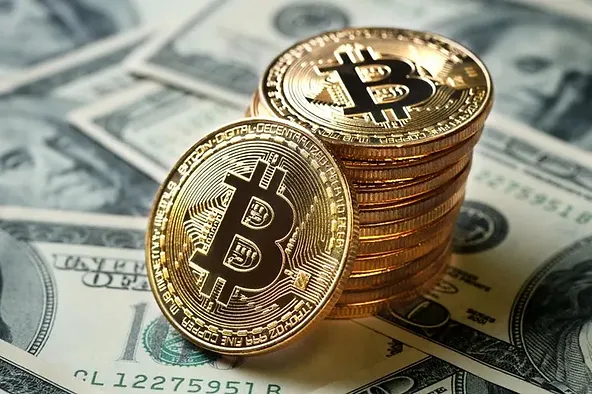
Highlights


The US is Planning to Use Highly Enriched Uranium in a Test Reactor.
The United States plans to test weapons-grade uranium in a research reactor, aiming to study its behavior despite past proliferation concerns. The Department of Energy argues its necessary for advanced reactor development, nuclear safety, and production of medical isotopes, while critics worry about potential risks. The article highlights the ongoing debate and its implications for nuclear policy and international security (Science). Read more here: https://www.science.org/content/article/u-s-planning-test-reactor-run-weapons-grade-uranium

Machu Picchu Wonders
From personal experience, there are select destinations that profoundly alter you upon visiting. Machu Picchu in Peru stands among them. For me, Machu Picchu marks a clear demarcation: life before and after this awe-inspiring place. Whether you opt for the adventurous journey or the more comfortable tourist route from Lima, both paths lead to the same profound experience, evoking a deep sense of humility, awe, and peace within.

The Path to $100K: Is Bitcoin Poised for a Breakthrough in 2024?
In recent weeks, there has been intense debate and speculation about Bitcoin’s potential to break the $100,000 mark. Is this milestone achievable, sustainable, and what would it mean for the future of cryptocurrency? Since its inception in 2009, Bitcoin has been a space where fortunes are made, dreams are shattered, and controversy is never far behind. It’s a landscape that attracts both the hopeful and the skeptical. For its ardent believers, Bitcoin represents an ecosystem of unparalleled financial opportunity. Its historical valuation curve is remarkable—if you had purchased 100 bitcoins at $0.10 each in 2010 and held onto them until today, your $10 investment would be worth $6 million! Such returns are almost unheard of in traditional markets. However, achieving this would require impeccable investment discipline and unwavering trust in Bitcoin to weather the numerous market upheavals over the years. For many others, Bitcoin has been a source of financial disappointment. Numerous investors, both large and small, have seen their investments, and sometimes their life savings, wiped out by the waves of booms and busts that Bitcoin has experienced over the past 15 years. So, what now? Has anything changed? Where is cryptocurrency headed? Should we brace for another cycle of deep depression, or is there reason to be bullish and expect Bitcoin to continue appreciating? Cryptocurrencies are still an unconventional form of investment, distinct in their structure, underlying value, and decentralized nature. However, several factors could contribute to bringing Bitcoin and other cryptocurrencies into a more stable and predictable territory. For the last fifteen years, governments and financial institutions have largely frowned upon cryptocurrencies, relegating them to the fringes of the financial world. Driven by investor sentiment and speculative forces, cryptocurrency valuations have been notoriously difficult to predict, unlike traditional investment tools that are more aligned with market drivers and offer opportunities for hedging against economic uncertainties. However, times are changing. Cryptocurrencies are now embraced by a new generation of investors. Despite their volatility, they are in growing demand—a trend that seems irreversible. To meet the needs of their clients and stay competitive, banks and private investment institutions have had to revise their strategies and create new investment products such as ETFs and mutual funds tied to Bitcoin and other digital assets. Governments, too, have realized that ostracizing crypto as a financial anomaly is no longer a viable strategy. Instead, they are increasingly participating in creating regulatory frameworks that support a more controlled and safer expansion of cryptocurrencies. These changes are slow and incremental, but they are positive forces that are helping to integrate Bitcoin and other cryptocurrencies into the traditional investment landscape, connecting them more closely with markets and economic indicators rather than treating them purely as speculative vehicles. Bitcoin’s status as the first cryptocurrency and its limited supply of 21 million coins (the rarity factor) ensure steady demand. But to reach $100,000 in a sustainable manner, Bitcoin will need to attract significantly more investors. Here are some factors to consider: Conclusion: Reaching the symbolic $100,000 mark would be a remarkable achievement for Bitcoin, but it would likely require a combination of factors beyond mere speculation. Positive market sentiment, continued adoption, favorable economic conditions, and supportive tax regulations would all need to align to provide Bitcoin with a foundation for sustainable long-term appreciation. While an extraordinary set of events could potentially push Bitcoin close to $100,000 in the short term, without stable regulatory frameworks and positive market sentiment, the risk of a sudden collapse from that point would be significant. Investing in cryptocurrencies remains a high-risk endeavor and may not align with your financial goals or risk tolerance. It is crucial to exercise caution and conduct thorough research before engaging in cryptocurrency investments. If you are unfamiliar with this type of investment, consider seeking guidance from a qualified financial advisor.

In the Search for New Asteroids…
Want to be an asteroid hunter? All you need is an internet connection. The NASA-funded Catalina Sky Survey has created a program for “citizen scientists” to join in on the hunt for new asteroids. In the testing phase alone, 64 new objects were spotted by just 3 people! Read more about how to join in here: https://www.iflscience.com/asteroid-hunters-needed-astronomers-call-on-the-public-to-join-search-for-more-space-rocks-68996

Reversing Aging: The Power of Stress Management
Can we reverse the aging process? News studies show stress can contribute to biological aging, but it’s possible to potentially reverse the process by recovering from, or eliminating, the source of stress. Clearly, prioritizing mental health and learning how to properly deal with stress is important, not only for general wellbeing, but also physical health (TheScientist). Read more here:
